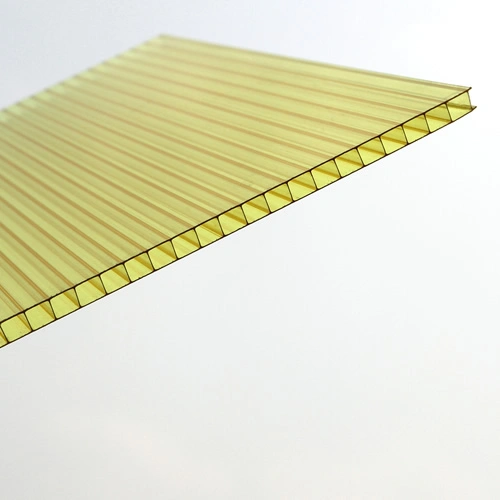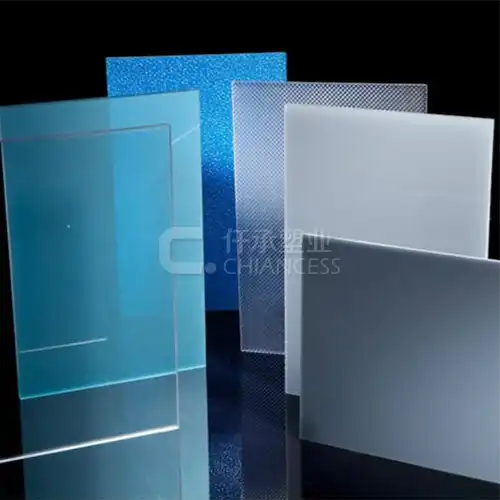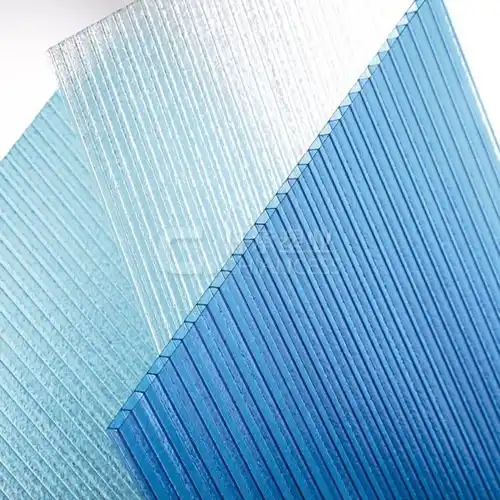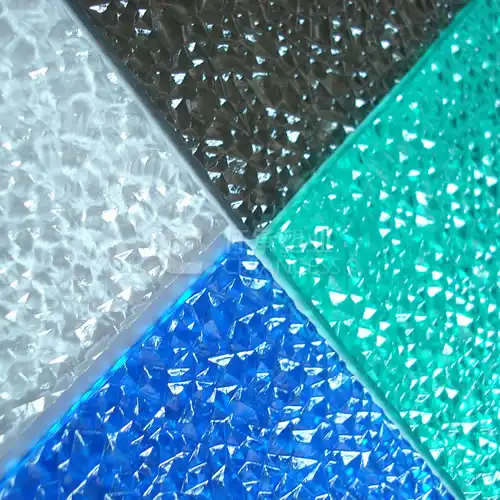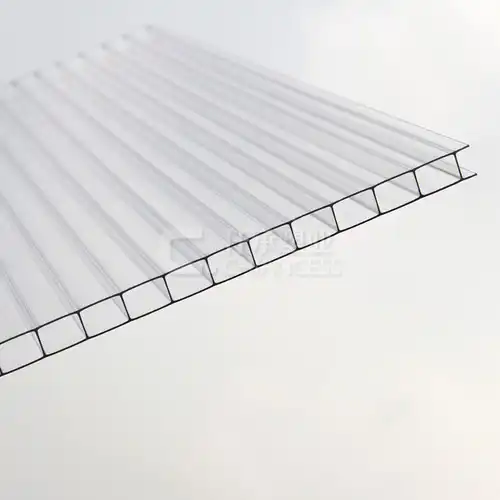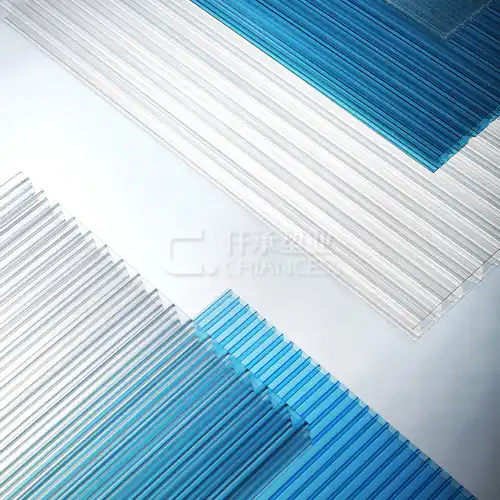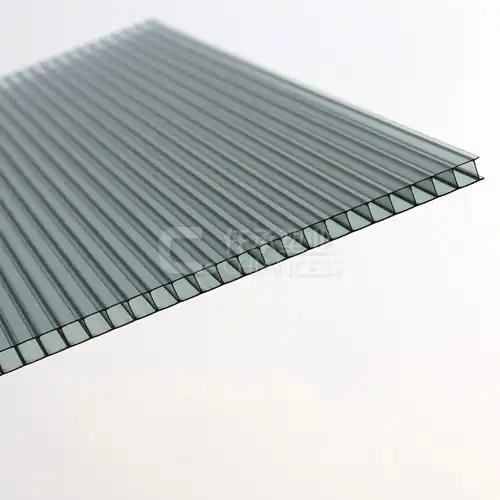July 17, 2024
Polycarbonate Profile is acquiring notoriety as a favored choice to glass in different applications, going from development to eyewear, for a few convincing reasons. Its champion highlights incorporate extraordinary solidness, outperforming that of glass, making it profoundly impervious to effects and breakage. This sturdiness improves security as well as expands the life expectancy of items and designs. Polycarbonate is additionally known for its energy proficiency, offering preferred protection properties over glass, which helps in diminishing warming and cooling costs.
Also, polycarbonate gives unrivaled UV assurance, forestalling yellowing and debasement after some time, in contrast to customary glass. This UV opposition makes it ideal for outside applications where drawn out openness to daylight is normal. Moreover, polycarbonate is lightweight yet solid, facilitating establishment and diminishing underlying burden contrasted with glass.Tending to normal requests, we'll investigate the material's adaptability, its capacity to be molded and altered for different requirements without compromising strength or lucidity. Whether you're thinking about it for windows, bay windows, wellbeing hindrances, or compositional accents, polycarbonate offers a cutting edge arrangement that joins common sense with maintainability.This blog means to give a thorough comprehension of polycarbonate's advantages over glass, assisting you with pursuing informed choices for your next project in light of solidness, security, energy effectiveness, and plan adaptability.
What Makes Polycarbonate Better Than Glass?
Due to a number of significant advantages, Polycarbonate Profile stands out as a superior alternative to glass in numerous applications. First and foremost, it has unparalleled durability; Polycarbonate is almost impossible to break, whereas glass is more likely to shatter when struck. Because of its durability and significant increase in safety, it is ideal for applications where impacts are a concern, such as eyewear, machine guards, and safety barriers.Second, polycarbonate is more resistant to impacts. It is favored in situations where safety and dependability are of the utmost importance due to its capacity to withstand high impacts. Additionally, this feature makes products and structures last longer, saving money over time on repairs and replacements.
Additionally, polycarbonate is more energy efficient than glass due to its superior insulation properties. It is especially useful in architectural applications like windows, skylights, and greenhouses because of its capacity to retain heat and block UV rays, which helps cut down on heating and cooling costs.Additionally, polycarbonate is lighter yet more durable than glass, making it simpler to install and handle. This characteristic contributes to overall efficiency and sustainability by simplifying construction processes and reducing the structural load on buildings.Lastly, polycarbonate permits customization and design flexibility. It doesn't lose its clarity or strength if it is easily shaped to meet the needs of a specific project. It is suitable for a wide range of applications, including architectural designs and industrial uses.In conclusion, polycarbonate outperforms glass in a variety of applications due to its durability, impact resistance, energy efficiency, lightweight nature, and design adaptability. Polycarbonate proves to be a modern and useful option whether you're looking for safety, durability, energy savings, or aesthetic appeal.
Why Is Polycarbonate More Durable Than Glass?
One of the most significant advantages of Polycarbonate Profile over glass is its exceptional durability. Polycarbonate is virtually unbreakable, with an impact resistance up to 250 times that of glass. This makes it an ideal material for environments where safety and durability are paramount, such as in schools, hospitals, and high-traffic public areas (Piedmont Plastics) (American Acrylics).
Unlike glass, which can shatter into sharp, dangerous fragments, polycarbonate remains intact even under significant stress. This property is particularly valuable in applications like safety shields, eyewear, and protective barriers. Additionally, polycarbonate's resistance to extreme weather conditions—be it hail, wind, or even prolonged sun exposure—ensures longevity and reduces the need for frequent replacements (Advanced Plastiform, Inc.) (Danpal).
Moreover, polycarbonate’s flexibility allows it to be shaped and formed without compromising its strength, making it suitable for a variety of architectural and industrial applications. For example, polycarbonate can be used in roofing panels and greenhouses where both durability and light transmission are essential (Canada Plastics) (UNQ).
How Does Polycarbonate Compare to Glass in Terms of Energy Efficiency?
Polycarbonate not only excels in durability but also offers superior energy efficiency compared to glass. Its excellent insulating properties help maintain a stable indoor temperature, reducing the need for artificial heating and cooling. This thermal efficiency translates into lower energy bills and a reduced carbon footprint, making Polycarbonate Profile a more sustainable choice for modern construction (Piedmont Plastics) (Danpal).
In greenhouses, polycarbonate panels are preferred over glass because they diffuse light more effectively, creating a more consistent and beneficial environment for plant growth. The material blocks harmful UV rays while allowing adequate light to pass through, which is crucial for maintaining healthy plant life (Mulberry Greenhouses) (American Acrylics).
Polycarbonate’s lightweight nature also contributes to its energy efficiency. It is significantly lighter than glass, reducing transportation and installation costs. This ease of handling and installation further minimizes the overall environmental impact of construction projects using polycarbonate (UNQ) (UNQ).
Is Polycarbonate Easier to Work With Than Glass?
Polycarbonate’s workability is another compelling reason to choose it over glass. It can be cut, drilled, and shaped on-site using standard tools, which is not feasible with glass due to its brittleness and risk of shattering. This adaptability allows for more creative and flexible design options in various applications, from complex architectural structures to simple DIY projects (American Acrylics) (Canada Plastics).
Additionally, polycarbonate sheets can be easily installed without the need for heavy-duty support structures, which are typically required for glass installations. This not only reduces the complexity and cost of the installation process but also enhances the overall safety and stability of the structure (UNQ) (UNQ).
Polycarbonate’s versatility extends to its aesthetic properties as well. It can be treated with anti-scratch and UV-resistant coatings, tinted in various colors, and produced in different textures to suit specific design needs. These customizable features make Polycarbonate Profile a versatile material that can meet diverse functional and aesthetic requirements (Advanced Plastiform, Inc.) (Piedmont Plastics).
Conclusion
Polycarbonate stands out as a superior alternative to glass in many respects. Its unmatched durability, energy efficiency, and ease of use make it an ideal choice for a wide range of applications. Whether you are considering materials for a greenhouse, roofing, or safety barriers, polycarbonate offers a compelling blend of practicality and performance.
If you are interested in our Polycarbonate Profile products, please contact us at: simon@chiancess.com.
References
Advanced Plastiform. "Why Choose Polycarbonate Instead of Glass?"
Piedmont Plastics. "Polycarbonate Vs. Glass – Everything You Need To Know."
American Acrylics. "Polycarbonate vs Glass - 10+ Helpful Comparisons."
Danpal. "Which is Better, Glass Or Polycarbonate, And Why?"
Canada Plastics. "Polycarbonate Sheets vs. Glass: Which One is the Better Choice?"
UNQ. "Why Choose Flat Polycarbonate Replacing The Tempering Glass?"
Just Polycarbonate. "Polycarbonate vs glass: what’s the best choice?"
Roofer Digest. "Polycarbonate Roof Panels: Guide to Installation and Maintenance."
Mulberry Greenhouses. "Glass vs Polycarbonate, which one to choose?"
Simply Plastics. "The Ultimate Guide to Polycarbonate."
.webp)
